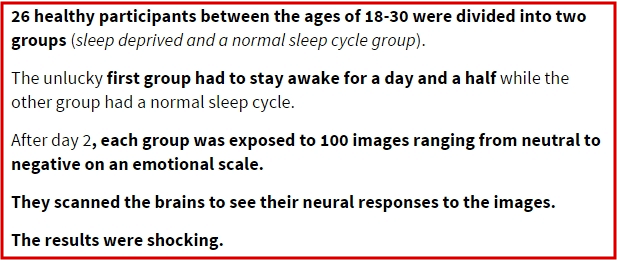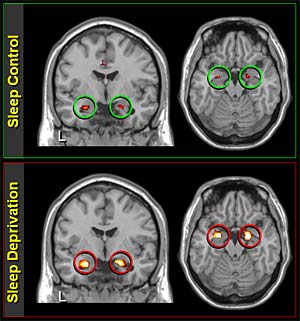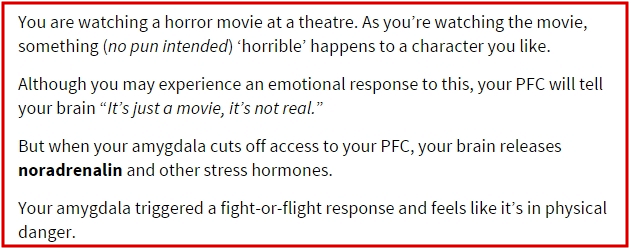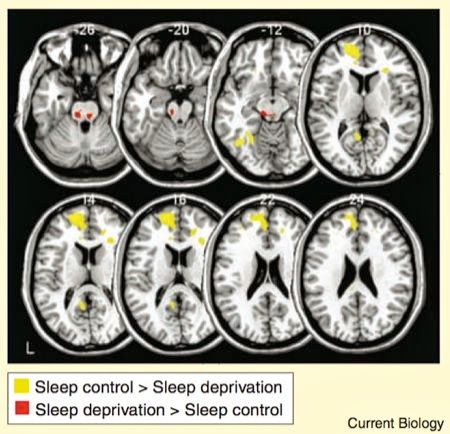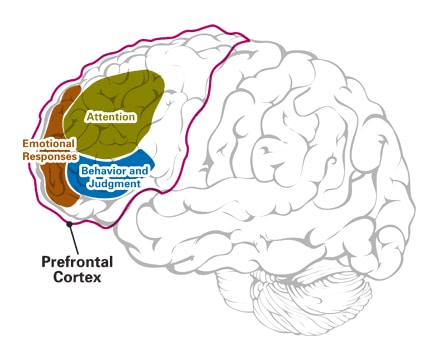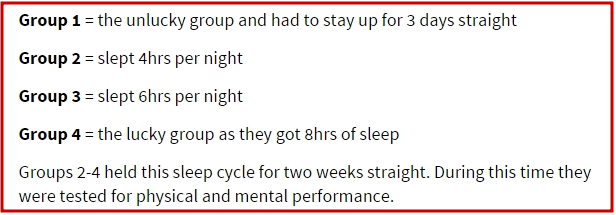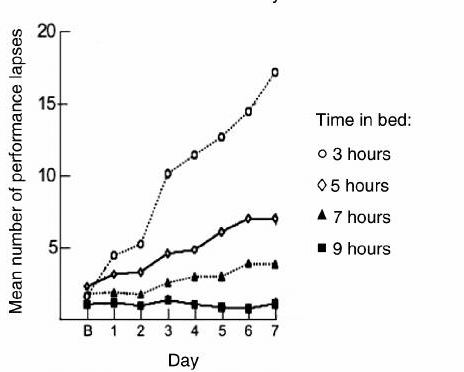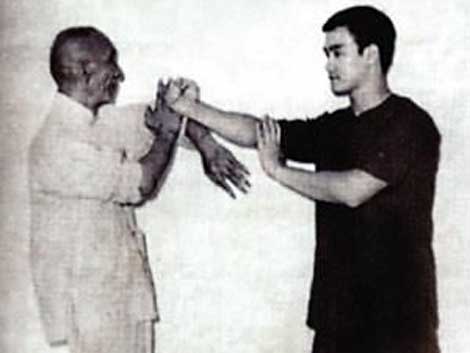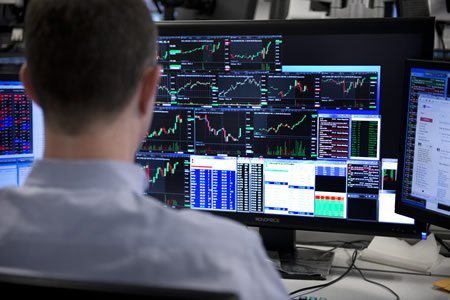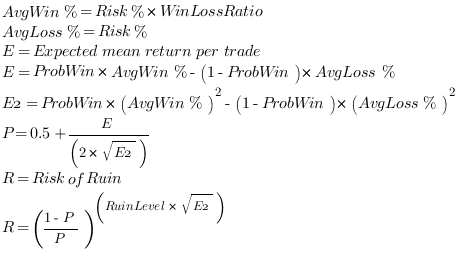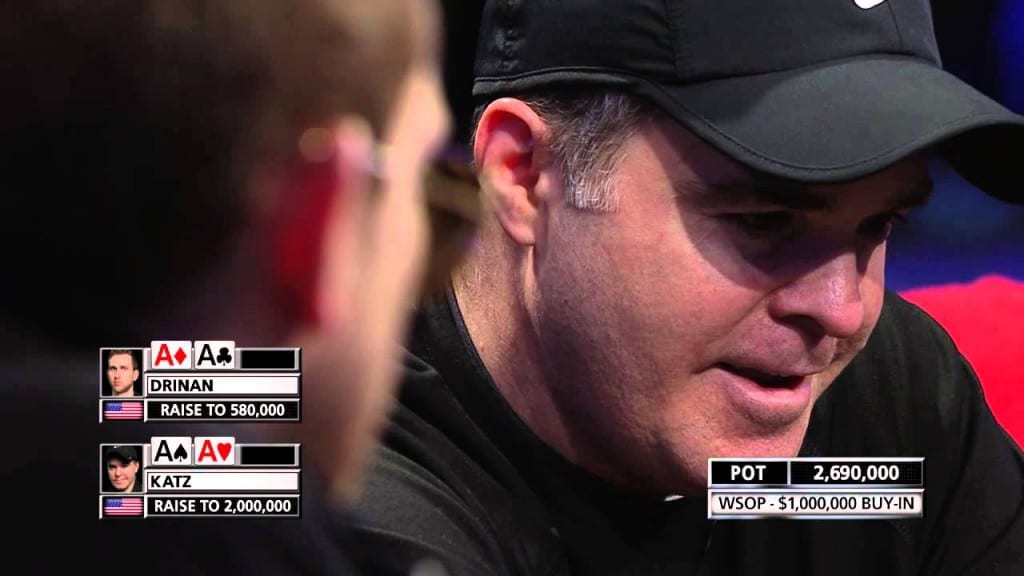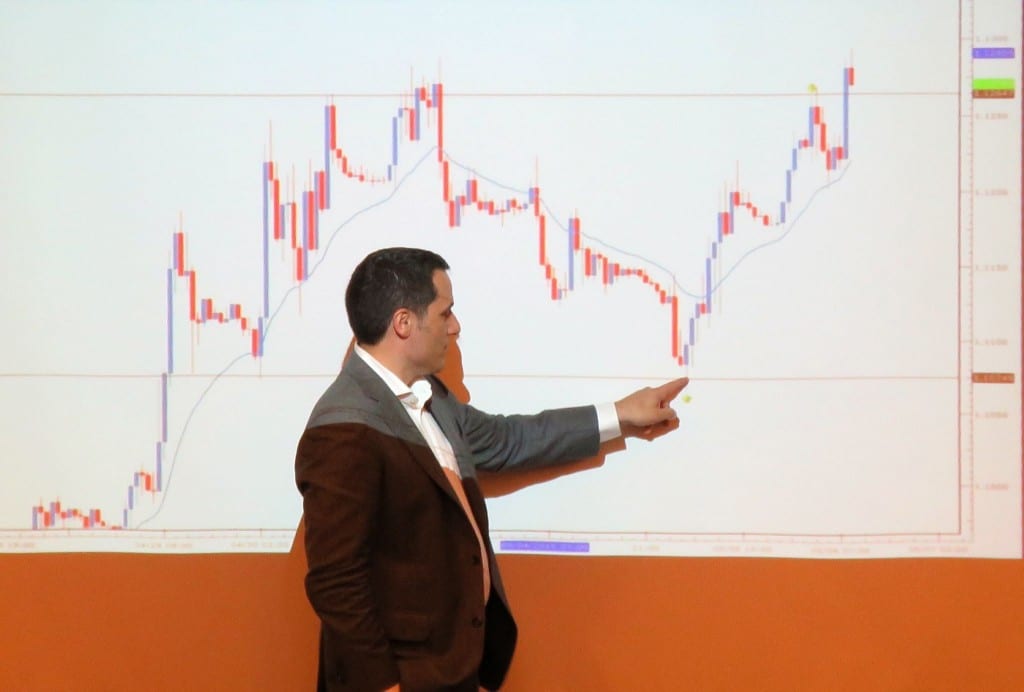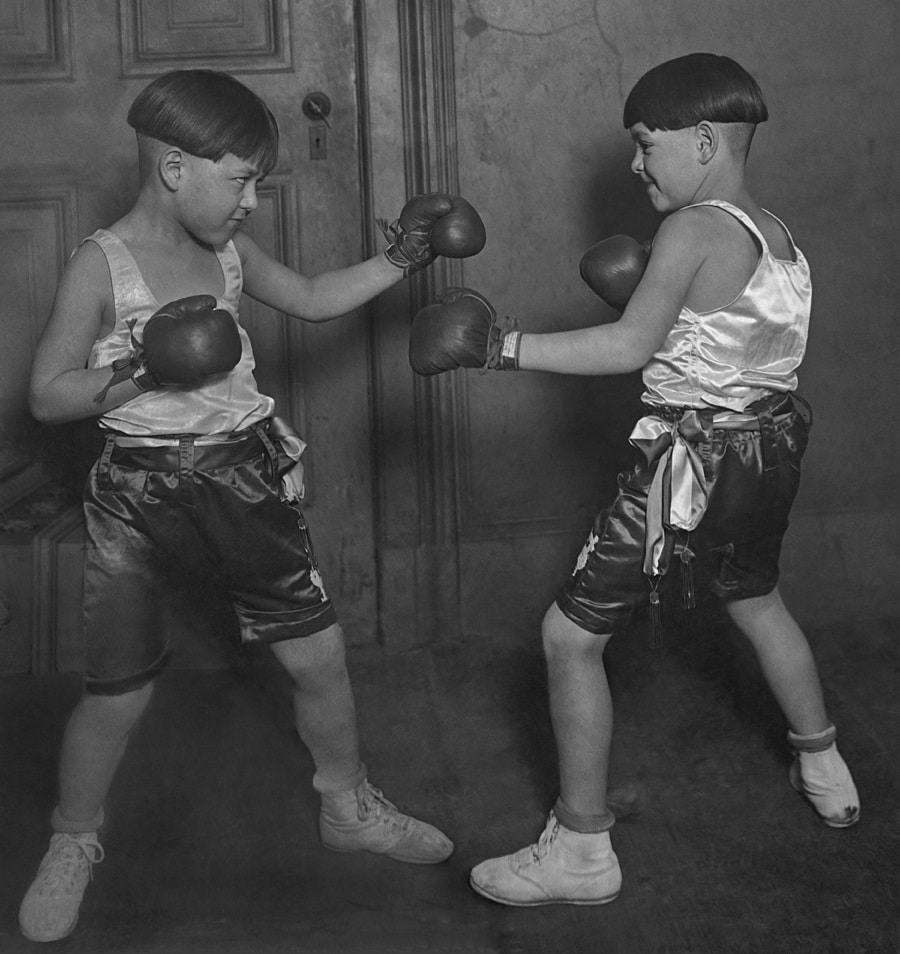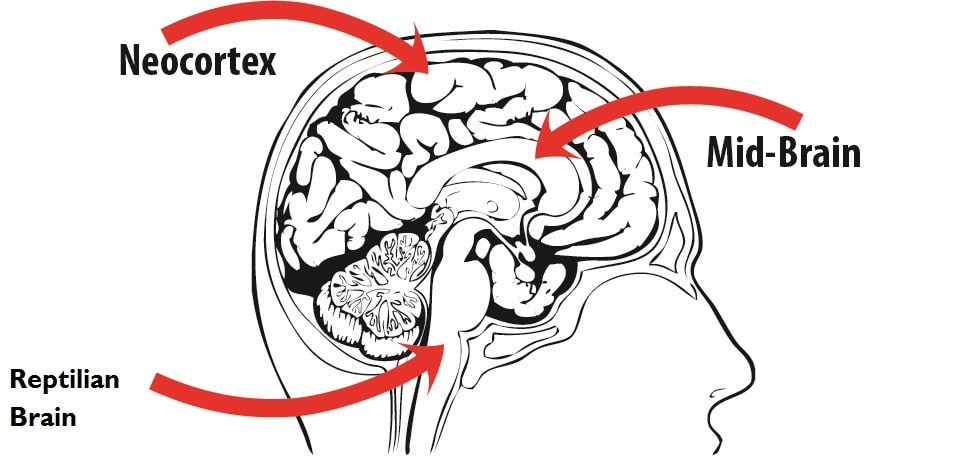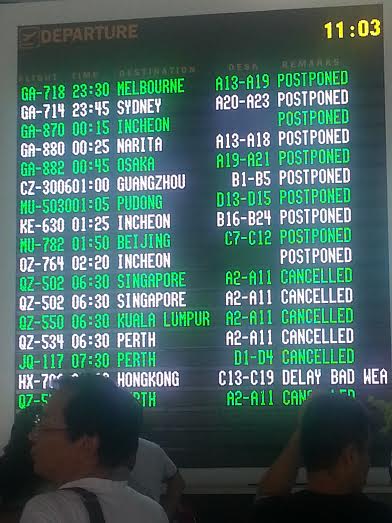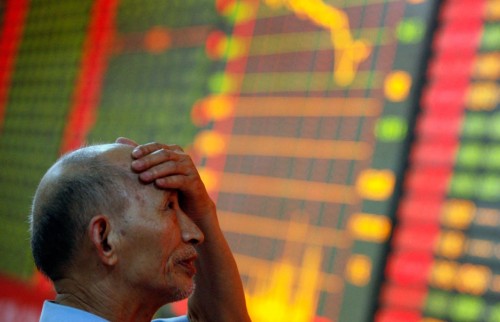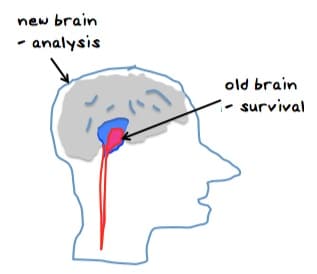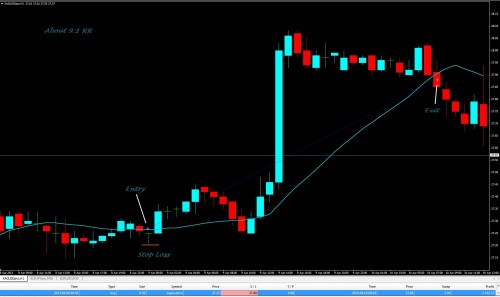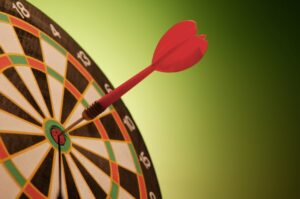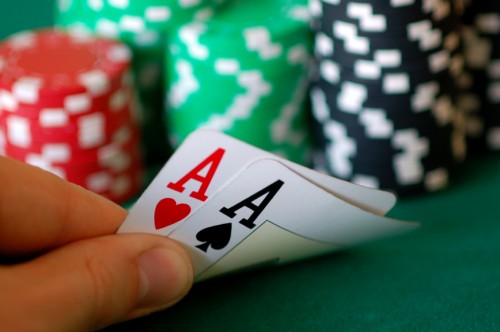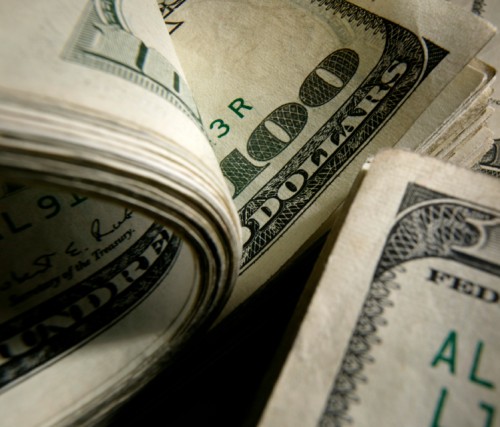Today’s post is going to be a unique article on something rarely discussed in trading – sleep.
As a trader, your success is overly dependent upon your brain being healthy. And one of the primary factors which determines your brain’s health is sleep quality.
Recently Dr. Walker from the UC Berkeley Sleep & Neuroimaging lab began the first neural studies on the emotional brain without sleep. The results were impressive and could be behind why your trading performance is struggling.
Here is how the experiment went:
After 1.5 days without proper sleep, the subjects neural activity resembled that of depression & anxiety.
Why?
When deprived of proper sleep, the amygdala (triggers fight-flight reactions) goes into hyperdrive.
Below is an image of the difference in neural activity from sleep deprived brains vs. normal sleep (source: UC Berkeley Sleep & Neuroimaging Lab).
In the top group (people who got normal amounts of sleep) you can see the green circles. That is the neural activity in the amygdala. Compare that level of activity to the sleep deprived brains below.
The sleep deprived brains had far greater amygdala stimulation vs. those with normal sleep.
Why does this matter for your brain and trading performance?
A highly triggered amygdala cuts off access to your PFC (pre-frontal cortex). You need the PFC because it’s what helps you make logical decisions and remain calm while trading.
No access to the PFC = really bad trading decisions. It means having negative emotional reactions to any winning trade going against you or getting stopped out from a losing trade.
To show how important the PFC is, consider the following scenario:
Basically you just lost about 10-20 IQ points in <1 second. In other words, you just went from smart to stupid. Good luck trading with stupid!
Ever been incredibly afraid to take a loss but couldn’t explain why? More than likely you were in a fight-or-flight response triggered by your amygdala.
Have you felt paralyzed to make the right decision in trading, even though you ‘knew‘ what to do? You were in a fight-or-flight response.
Even healthy brains showed how they could mimic pathological patterns from sleep deprivation.
In fact clinical evidence shows some form of sleep deprivation is present in almost all psychiatric disorders.
Can you now see how important getting proper sleep is now to your brain and profits?
Sleep Affects Your Positive & Negative Biases
In a correlated experiment by Walker, sleep deprived students tried to memorize a list of words. The words had either a positive or negative connotation.
Subjects who had less sleep than normal (6hrs or less) remembered 81% of the words with a negative connotation. Hence words like ‘cancer‘, ‘anger‘, and ‘pain‘.
How many words with a positive connotation could the same people remember? 31%
Getting less sleep than needed triggers a massive bias in your brain towards the negative.
It means trading on less sleep = noticing what’s wrong, not what’s right with your trading.
It leads to every pip the market moves against you feels ‘threatening’.
It translates to losses triggering negative emotional responses, and not being a part of the game.
How can you expect to trade profitably with this brain and mindset? How can you build a winning trading psychology with this brain and mind?
To hammer the point home, below is another image of sleep deprived brains vs. those who got normal sleep (source: current biology).
The first three brains (sleep deprived) show red spots in the center of the brain (more primal functions). Contrast this to the yellow spots (those who got proper sleep). Notice how the location of activity is different (in the front)?
Most of the yellow spots of neural activity are in the pre-frontal cortex. You need the PFC active to trade successfully (image below).
Sleep Debt is Cumulative
One last experiment on how sleep affects your trading performance before I discuss solutions.
At the Univ. of Pennsylvania, researchers got 48 men & women with normal sleep habits (avg. 7-8 hrs per night).
They split these people into 4 groups:
How did they perform?
Group 4 (8hrs of sleep) showed no declines in their cognitive performance, motor skills or attention.
Groups 2 and 3 showed steady declines in all categories each passing day.
Group 2 (4hrs of sleep) obviously performed the worst, however group 3 didn’t do much better.
Hence sleep debt with every passing day has cumulative effects. There is a neurological cost that accumulates in your brain over time.
Group 3 had 25% of their subjects falling asleep randomly throughout the day only after 1 week. By week 2, there performance was so bad, it was as if they had not slept for 2 days.
But to sum up the results from the experiment, let me put it another way:
If you get 6hrs of sleep per night for two weeks, your mental & physical performance = that of not sleeping for 2 days straight!
Below is a great graph showing how many cognitive lapses subjects had based on how little sleep they got over time.
Interestingly enough, when the groups had to evaluate their performance, they were off by a mile. They only thought their performance dipped for a few days. In fact it declined every day!
Here’s a great read on how people are really bad at evaluating their own performance.
6 Solutions To Getting More Sleep & A Better Brain
Now that I’ve convinced you (hopefully) how important sleep is for the health of your brain and success in trading, it’s time for solutions.
Below are 6 solutions or tips for getting better sleep and keeping your brain healthy.
#1: Develop A Schedule and Sleep Ritual
As someone who’s struggled with getting proper sleep for 4 decades, the best sleep I ever got in my life was in 2011.
What was so special about 2011?
I was doing a 1 year meditation retreat and had a strict schedule. Out of 365 days that year, I aced that schedule 350 of those days with two weeks of travel responsible for the rest.
By 10.30pm every night, I was asleep (actually asleep, not just in bed). I got up at 6.30am sharp every day for my 7.30 morning practice. And go figure – I never slept better in my entire life.
Hence – develop a sleep ritual and schedule.
What is a key component of a sleep ritual?
-Dis-engaging from your work activities
The last thing you want to do is work up till the moment you fall asleep.
Ever had dreams of being in trades? My guess is you were trading up till the moment you feel asleep.
“What you think about right before sleep can prime your unconscious mind & what you dream about.”
I try to read something positive (about buddhism or meditation) before I fall asleep. This way I’m priming my mind to have conscious healthy activity while sleeping.
Whatever you do, try to clear your head and get into a positive relaxed space before falling asleep.
#2 Be Tired Physically
There is nothing that will help you sleep better than being physically tired. Doing some sort of physically challenging exercise a couple of hours before bed is a great way to sleep well.
Exercise helps do two key things for your sleep:
1) produce neurotransmitters which help your brain relax and
2) primes your body to ‘recover’ and thus sleep deeply
Hence take a yoga class, do martial arts, hit the gym or go for a walk to sleep deeply.
I started taking Wing Chun classes and my body feels better than ever.
(Photo of Ip Man – Founder of Wing Chun training Bruce Lee)
#3 Take A Nap
Europeans and Latin Americans seem to have this down pat. North Americans…not so much.
Trading and work causes stress and cognitive load (CL) on your brain.
Taking a nap will help reduce cognitive load while increasing alertness during your day.
It also prevents burnout, reduces the risk of heart disease and increases sensory perception.
Hence if you can find a way, take a nap.
Here is a picture below of my two cats helping me with such napping activities 🙂
#4 Temperature
The body and brain are trying to wind down before sleeping. Hot rooms tend to cause more disturbed sleep.
But cool rooms tend to promote greater sleep.
Ever notice on airplanes how they make it so damn cold? This is to help induce sleep (sleepy passengers = less work for the aircrew).
#5 Skip the Nightcap
Although it sounds sexy to invite the femme fatale in for a night cap, you’ll actually get worse sleep with alcohol in your system.
Alcohol dehydrates the brain and body. This can delay your REM cycle while also causing your adrenaline to spike (alcohol subdues the adrenal glands).
Hence avoid any alcohol (or caffeine) several hours before falling asleep to keep your adrenals relaxed.
#6 Meditation
The science is clear at this point – meditation gives you a better brain.
Meditation:
-strengthens your immune system
-improves neural structure
-slows brain degeneration
-increases IQ
-and raises cognitive performance.
It is also fantastic for falling asleep as it calms your mind.
Below is a great image of your brain before and after meditation.
The brain on the left (before meditation) is one that is overly active and definitely not relaxed.
The brain on the right however is as calm as a zen buffalo.
Click on the link below to learn a meditation practice for trading.
Meditation for Trading – My 15 Years Of Practice
In Conclusion
Your brain is the most dominant variable which determines your success in trading.
One of the most important factors which can affect your brain’s performance is sleep.
Losing a few hours sleep each day has a cumulative effect upon your brain and can literally lower your IQ.
The good thing is you now have 6 techniques which can improve your sleep quality and time.
Hopefully now you can see how important sleep is to your mental well-being and trading performance.
With that being said, are you often emotional or reacting negatively while trading?
What techniques do you use to get some deep sleep?
Make sure to comment and share below.
And if you want to overcome your emotions while trading and improve cognitive performance, make sure to sign up for my Advanced Traders Mindset Course which opens in a few weeks.

